Books
Books
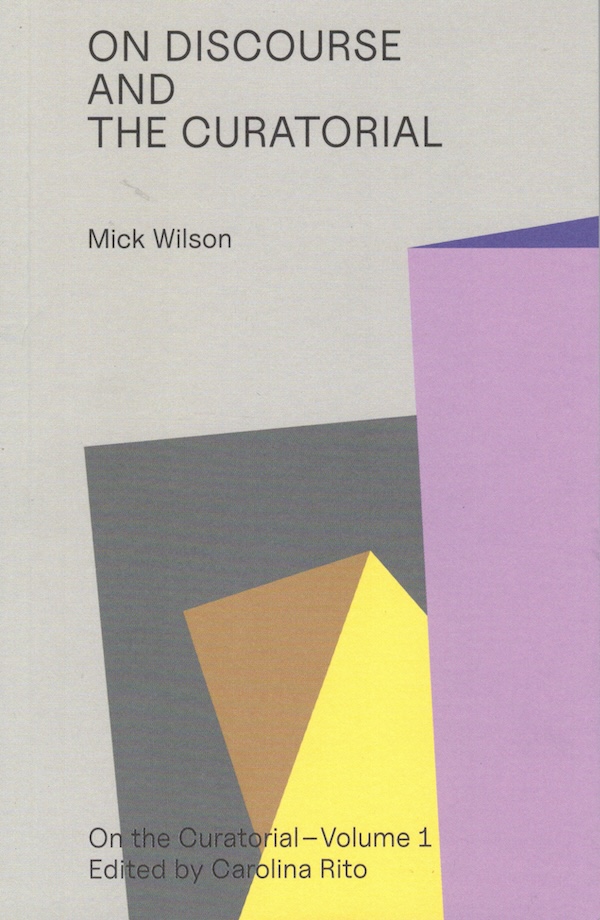
On Discourse and the Curatorial
Production of exhibitions and production of discourse on exhibitions.
With the paradigm of salon exhibitions, developed some three centuries ago, bourgeois art patrons were moved to transform their experience of an exhibition into words. This incitement to discourse persists as a central component of contemporary curatorial practice, within and beyond exhibitions as singular events. In On Discourse and the Curatorial, Mick Wilson draws out the link between the dual imperatives to generate discourse and to cultivate culture, which emerge in the genealogy of the salon, the exhibition complex, and the museum.
In the early 2010s, the idea of "the curatorial" arose after a short but intense debate about what it means to curate exhibitions. The books in the On the Curatorial series look at the consequences of that discussion today and ask: Do we need different curatorial tools to engage with deepening social, political, and ecological crises? The series allows earlier participants in the debate to reflect on how their concepts and practices have changed, while younger generations of curators explore the ongoing need for new conceptual approaches to curation.
The series is edited by Carolina Rito, who is professor of creative practice research at the Research Centre for Arts, Memory, and Communities, Coventry University, UK, and executive editor of Contemporary Journal.
Mick Wilson is professor of art and director of doctoral studies at the University of Gothenburg and co-chair of the Centre for Art and the Political Imaginary.
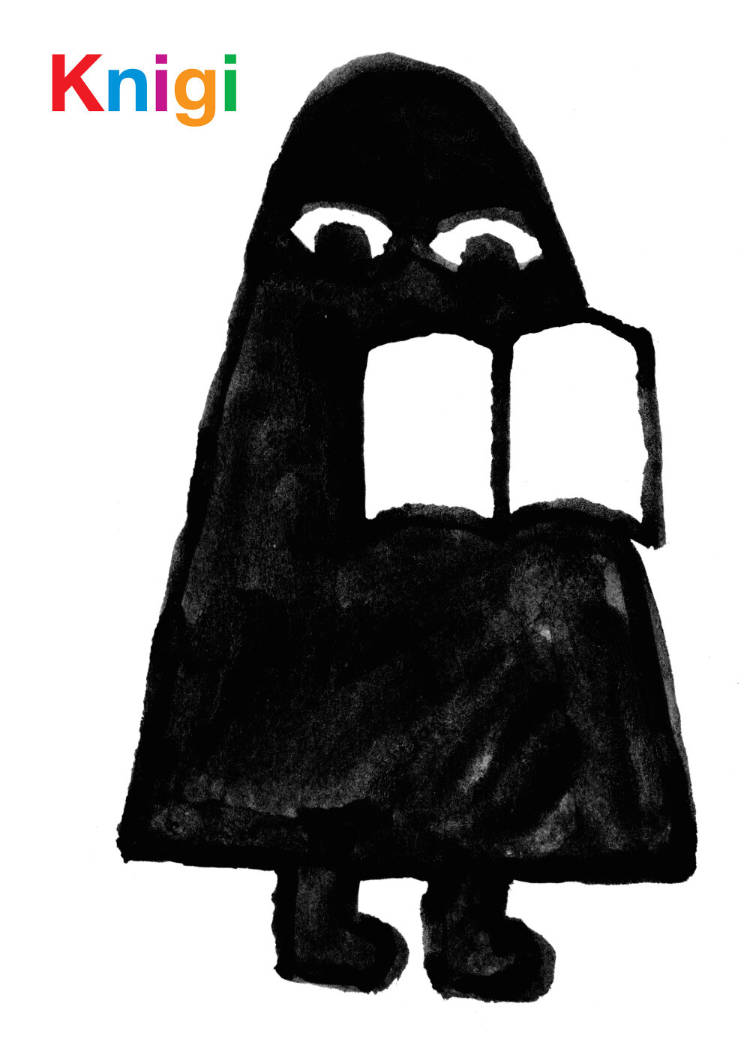
Knigi
The new, adapted and expanded edition of Benjamin Sommerhalder's children's book (the story of the little ghost Knigi, learning how to read).
On little Ghost Knigi's birthnight he receives a book from his Aunt Abel. When she hands it to him all she says is, ‘I hope you enjoy reading this!' Knigi is quite young, but still at an age when human children normally learn to read. And it's the same for ghost children. ‘But something is wrong', Knigi worries. The book is absolutely white – every page, from cover to cover. Knigi is forced to embark on a journey to find out how to read.
Ghost Knigi is the first book drawn and written by Benjamin Sommerhalder and published in a first edition by Nieves in Zurich.
Graphic designer and publisher based in Zurich, Benjamin Sommerhalder is the founder and editor-in-chief of Nieves.

Cassell's Encyclopedia of Queer Myth, Symbol and Spirit
Randy P. Conner, David Hatfield Sparks and 1 more
Bootleg edition by Cutt Press.
Foreword by Gloria Anzaldua.
Drawing on religion, mythology, folklore, anthropology, history and the arts, this encyclopoedia is a collection of queer spirit. It contains articles on the world's spiritual traditions; entries on deities, symbols, spiritual teachers, spiritually focused artists; and related subjects.
Did you know that in medieval French folklore a person might change sex by passing under a rainbow? Or that same-sex unions have been celebrated by peoples of the ancient Mediterranean, Africa, China, and indigenous America? Or that Sappho, da Vinci, Emily Dickinson, Nijinsky, Benjamin Britten, Mishima, Adrienne Rich, Audre Lorde, Keith Haring, Boy George, and Derek Jarman number among those who have explored the spiritual dimension of gender and sexuality in their works? While the terms many of us employ today to identify ourselves – ‘queer’, ‘lesbian’, ‘gay’, ‘bisexual’, ‘transgendered’ – differ markedly from those of peoples of other times and places, we are nevertheless the bearers of a rich spiritual history that has been ignored or suppressed, a history encoded in sacred texts as well as in works of art, music, dance and other media. Drawing upon religion, mythology, folklore, anthropology, history and the arts, the Encyclopedia is a cornucopia of queer spirituality, containing over 1,500 alphabetically arranged entries from Aakulujjuusi to Zeus.
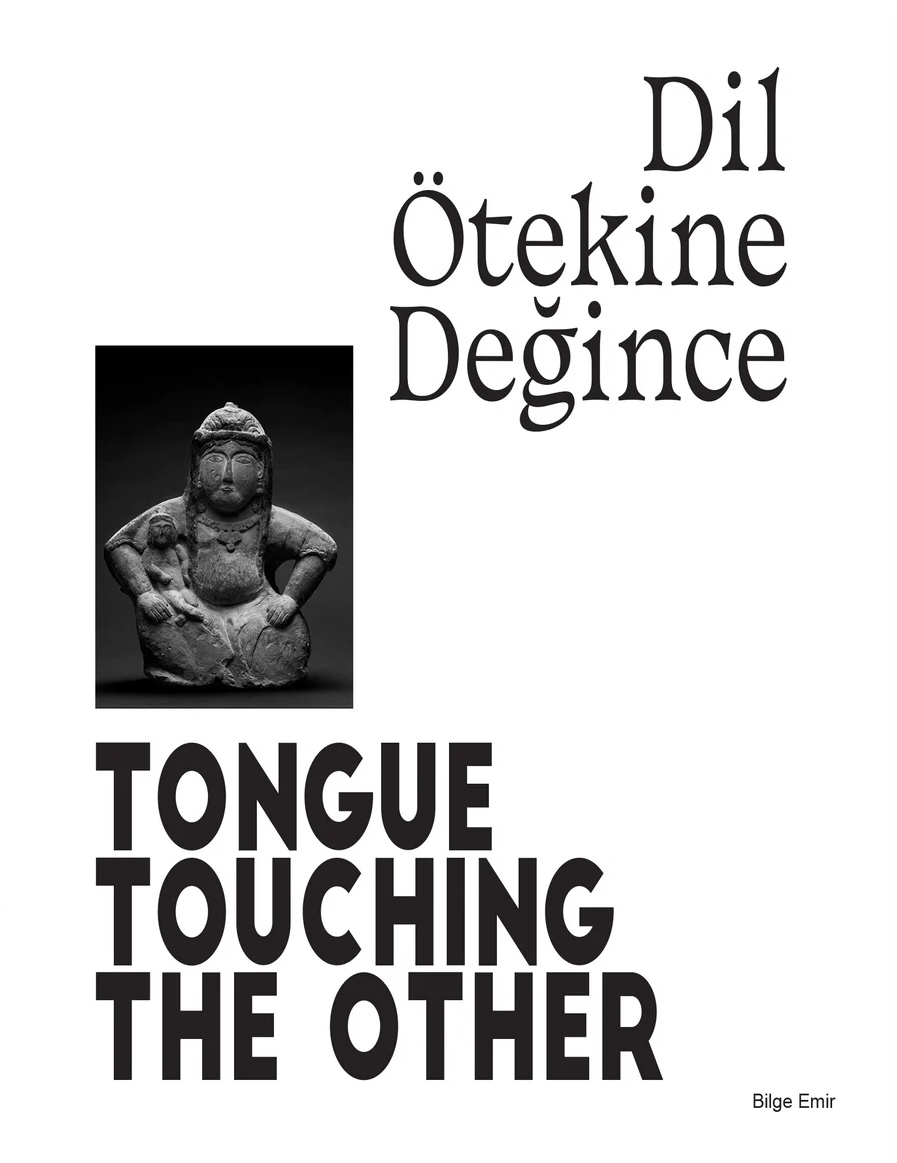
Tongue Touching The Other
Tongue Touching the Other / Dil Ötekine Değince is a result of a research project on the Turkish language and its exchanges mainly with Arabic, Farsi and Kurdish. Through language, it aims to follow a common, transnational history and how modern national identities affected our knowledge of that history, and sense of belonging. However, as much as commons, varied forms and dimensions of marginalization are also deeply embedded in our history, culture, language, and as a result, in our everyday lives and in our collective unconsciousness. This book is an attempt to rethink the social, economic & cultural contexts of identity and the concept of “othering” and reflect on inherited motives of imperial and colonial structures, racism, colourism, classism & gender roles.
The book was created through a multi-layered process involving research, conversations, and design. The research phase explored academic texts, etymology, and visual culture to uncover narratives of commons and division. Conversations with 18 people across 9 countries—based on trust and anonymity—provided personal, subjective insights, recorded between July 2022 and January 2025. These dialogues were transcribed and, rather than presented chronologically, were edited into a montage alongside archival visuals and texts, shaping the book's four-chapter narrative:
Yabancı / Stranger / یابان
Misafir / Guest / مسافر
Eğitim / Education
Temsil / Representation / تمثيل
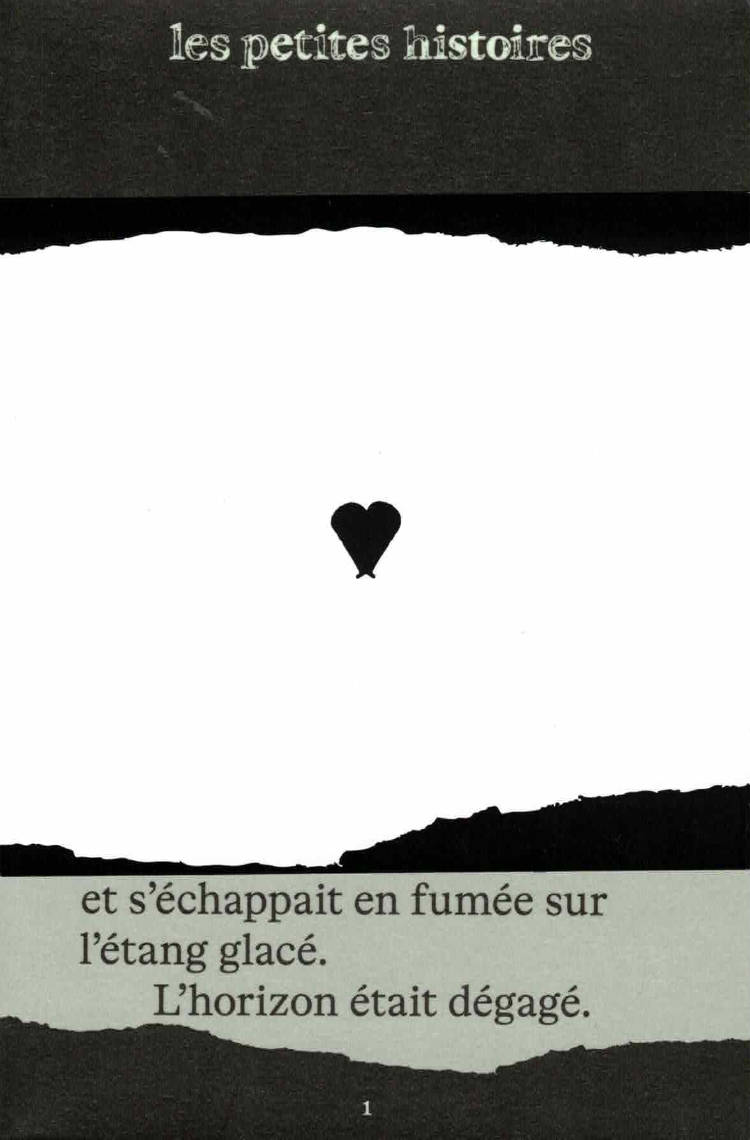
les petites histoires
Sam Buouffandeau, S. M. Drogo and 2 more
les petites histoires sont quatre courtes fictions contemporaines. Entre le lonely langoureux New York des années deux mille, le pont poétique et capricieux de Louis 2 de Bavière, l'histoire vraie de Sandy Stone dans les seventies et la satire cinglante et drôle d'une galerie d'art, ces livres sont de brefs univers vivants et curieux.
En 2025, quatre petites histoires sont racontées par quatre auteurices dans quatre livres : L'effondrement du pont de Sam Bouffandeau ; The Gallery de S. M. Drogo ; Exit de Juli Le Nahelec; «Que faire de Sandy Stone?» de Mia Trabalon.
L'édition des petites histoires a été imaginée par Élise Comte, Chloé Delchini, Perrine Estienne, Gabriel René Franjou, Justine Gensse, Bastien Hauser, et Cyprien Muth. Ce collectif d'éditeurices est né à Bruxelles, où les petites histoires ont été imprimées, chez Graphius.
La maquette, réalisée par Chloé Delchini, à été composée avec Otto, une typographie dessinée par Sam de Groot et Laura Opsomer Mironov, chez Dinamo Typefaces.
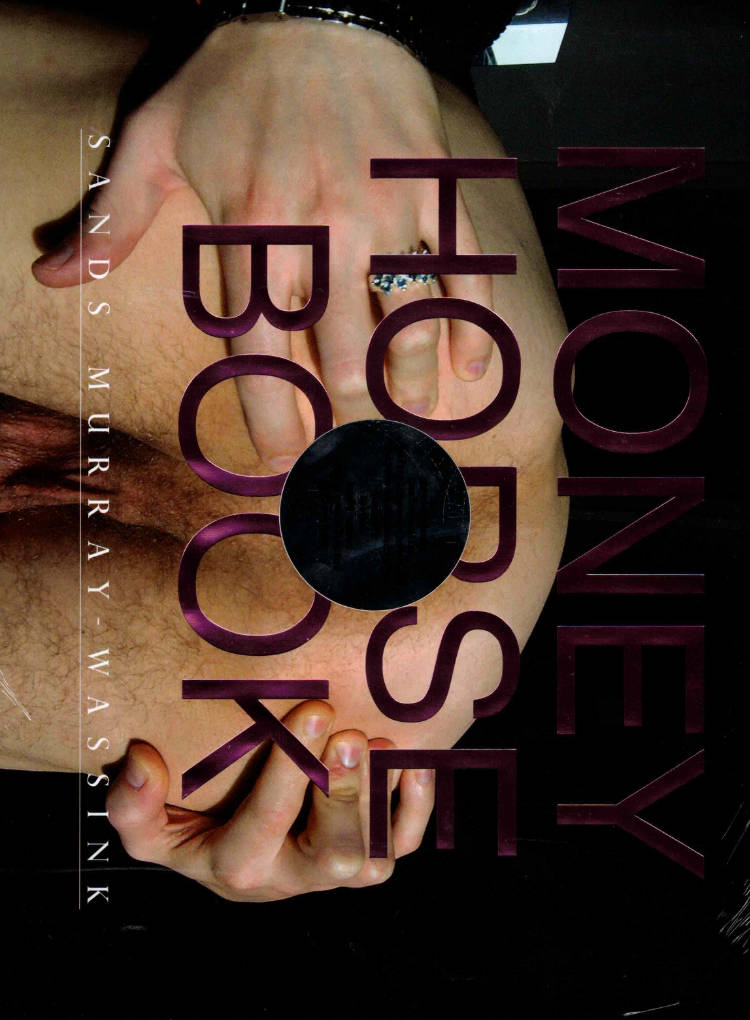
MONEY HORSE BOOK
Sands Murray-Wassink (b. 1974, Topeka, Kansas) is a painter, writer, and performance artist based in Amsterdam. A long-overlooked cult figure in the city’s art scene, his work spans decades, touching on themes of gender, desire, intimacy, mental health, and self-exploration. Deeply influenced by intersectional feminism and queer theory, his practice revolves around, and is shaped by figures such as Carolee Schneemann, Hannah Wilke, Adrian Piper, and Eva Hesse.
Since 2014, Sands has predominantly focused on what he calls “Horse Drawings,” utilizing mostly watercolors and often incorporating quickly drawn texts, on A4 and A3 formats, both on white, colored paper and found material such as newspapers. These drawings, while sometimes devoid of actual horse imagery, all bear the title and embody the spirit of equine grace, symbolizing a personal journey towards healing. The horse, a figure the artist was once restricted from engaging with by his grandfather due to its perceived femininity, has evolved in his work as an emblem of transformation and healing. The book includes a broad selection of over 700 drawings printed in full color, and the short text Investment by Sands.
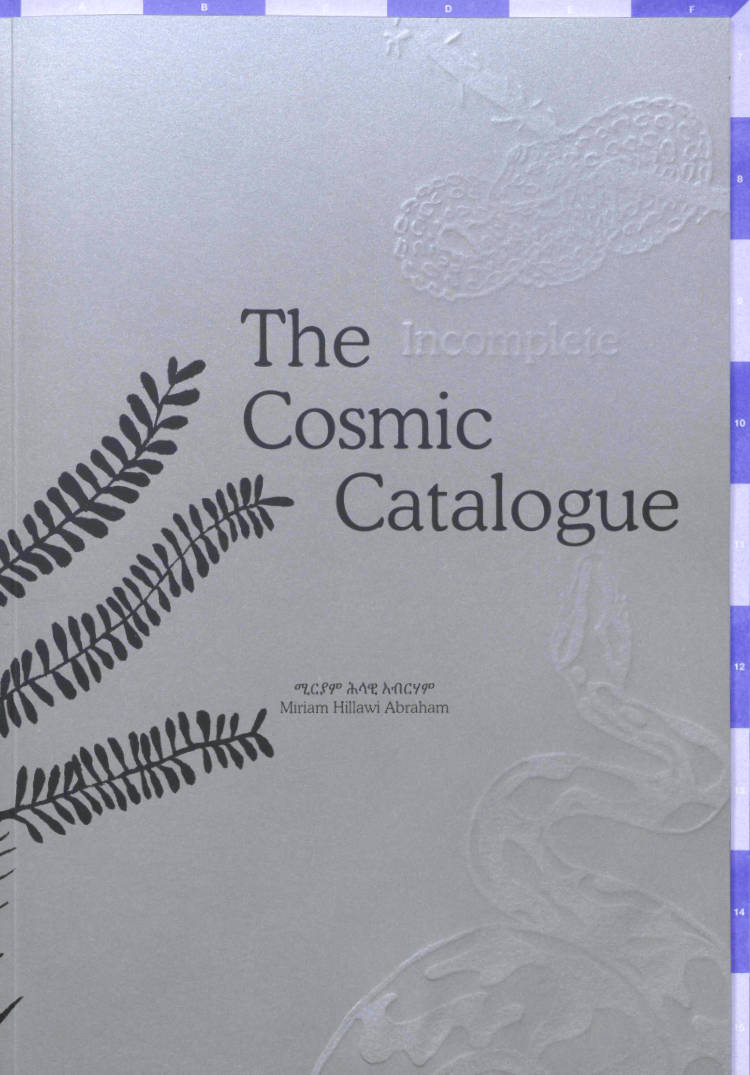
The (Incomplete) Cosmic Catalogue
Mapping constellations between five specific pre-colonial cosmological examples extending from the Sahel to the Horn of Africa, this work reframes cosmology as a multi-dimensional and scalable practice of situated technologies and embodied cartographies. The resulting publication which was produced during the Jan van Eyck residency is a culmination of several years of research and exploration into precolonial cosmologies and spatial orders rooted in the African Sahel extending to the Horn of Africa.
The (Incomplete) Cosmic Catalogue is an output of a research project that was initially commissioned by the Canadian Centre for Architecture as part of the multi-disciplinary research fellowship, The Digita Now: Architecture and Intersectionality in 2022.
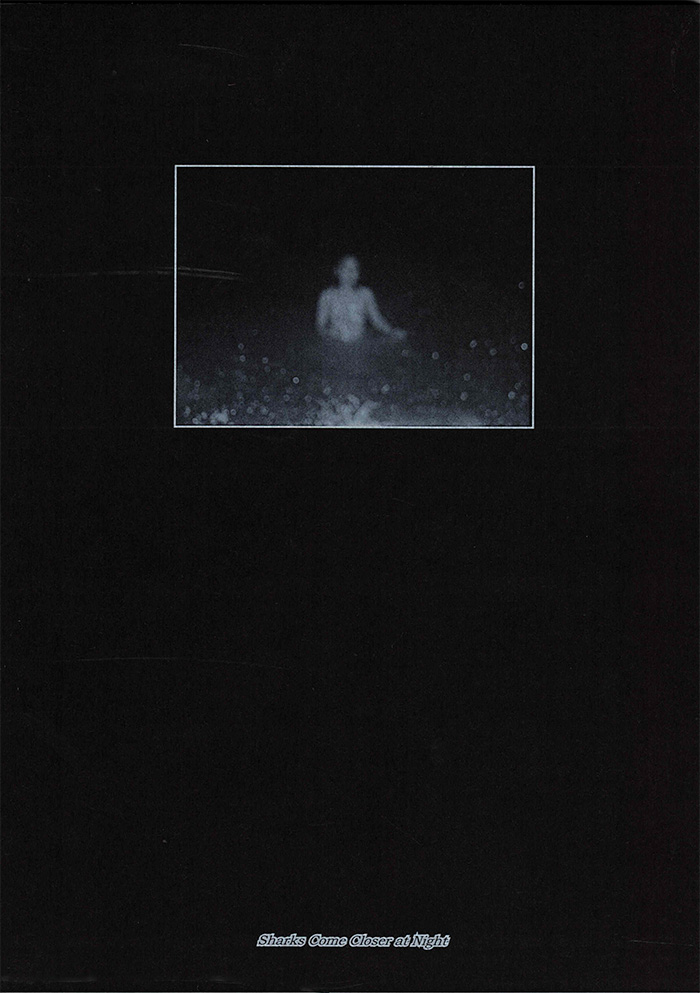
Sharks Come Closer at Night
Sharks Come Closer at Night explores the bond the photographer Lauranne Leunis formed with friends during a first experience far from home. It becomes an intimate reflection on the sacred space they created during their evening walks. In these moments, they found solace in one another while navigating the challenges of young adulthood and the complexities of femininity. The work aims to slow down time, capturing moments of vulnerability, freedom, and connection. Yet even in the stillness, the persistent sound of crashing waves and splashing water serves as a reminder that time is always moving.
All photographs are made on analogue black-and-white film, using various camera formats. This approach adds a raw, fleeting quality to the images, distinguishing them from more staged photographs.

A Queer Year of Love Letters
A Queer Year of Love Letters: Alphabets Against Erasure is a toolkit for writing and remembering queer and trans histories. Expanding on Nat Pyper’s series of fonts whose letterforms derive from the life stories and printed traces of countercultural queers of the last several decades, this new book showcases overlooked biographies alongside previously unseen archival materials, as well as Pyper’s unique approach to designing fonts as containers for memory.
The book debuts a new essay by Pyper, and includes contributions from Paul Soulellis, Claire Star Finch, Silas Munro, Lukaza Branfman-Verissimo, Rosen Eveleigh, and G. B. Jones that offer vital perspectives on queer archival practices, language lineages, design as protest, and love as the basis for research. Part reader, part type specimen, part love letter, these fonts foreground the politics of queer memory while opening up new avenues for writers, designers, and curious readers.
Dear writer,
A Queer Year of Love Letters is a series of fonts that remembers the lives and work of countercultural queers of the past several decades. The series aims to make the act of remembering these overlooked and illegitimate histories accessible to other people, as easy as typing. Better yet: it aims to make the act of typing an act of remembering. That these fonts might be considered typefaces is incidental. They are an attempt to improvise a clandestine lineage, an aspatial and atemporal kind of queer kinship, through the act of writing.
I began making these fonts in order to rapidly document and disseminate the work and ideas that they cite. I pack these histories, or part of them, into fonts for a couple of reasons. First, font files are durable. OpenType fonts (.OTFs) have persisted in their ubiquity since the late '90s and maintain their utility as a nimble and reliable format. Second, fonts have the capacity to contain a hefty amount of information within a tiny package. In under 100 kilobytes, an entire alphabet! In the font’s metadata, a manifesto! Fonts then function as a useful format for ferrying information from one place to another.
I am using these fonts as time machines. These machines take me back—to Robert Ford and Black gay and lesbian underground publishing in early 1990s Chicago; to the Lesbian Alliance, a socialist-feminist enclave in 1970s St. Louis, Missouri; to G.B. Jones and queer punk filmmaking in 1980s downtown Toronto—but they also take me forward to unknown futures through the act of writing itself. In use, these fonts engage the past as a provocation. They engage the past as a verb.
Is this romantic? Yes.
Love,
Nat

Dear Enheduanna,
Part prayer, part performance, part poetic treatise, Dear Enheduanna writes out to the high priestess and first known author then swallows whole the epistolary form. Pulp decay as publishing tactic. These are conjuring poems; poems coming after collaboration—entanglement as conceit, as kink, as communion pleasure tactic. Smuggle in a sexy mirror, smuggle in a double-headed dildo, smuggle in a sentence then feel it read back: the author is reader is author is reader.
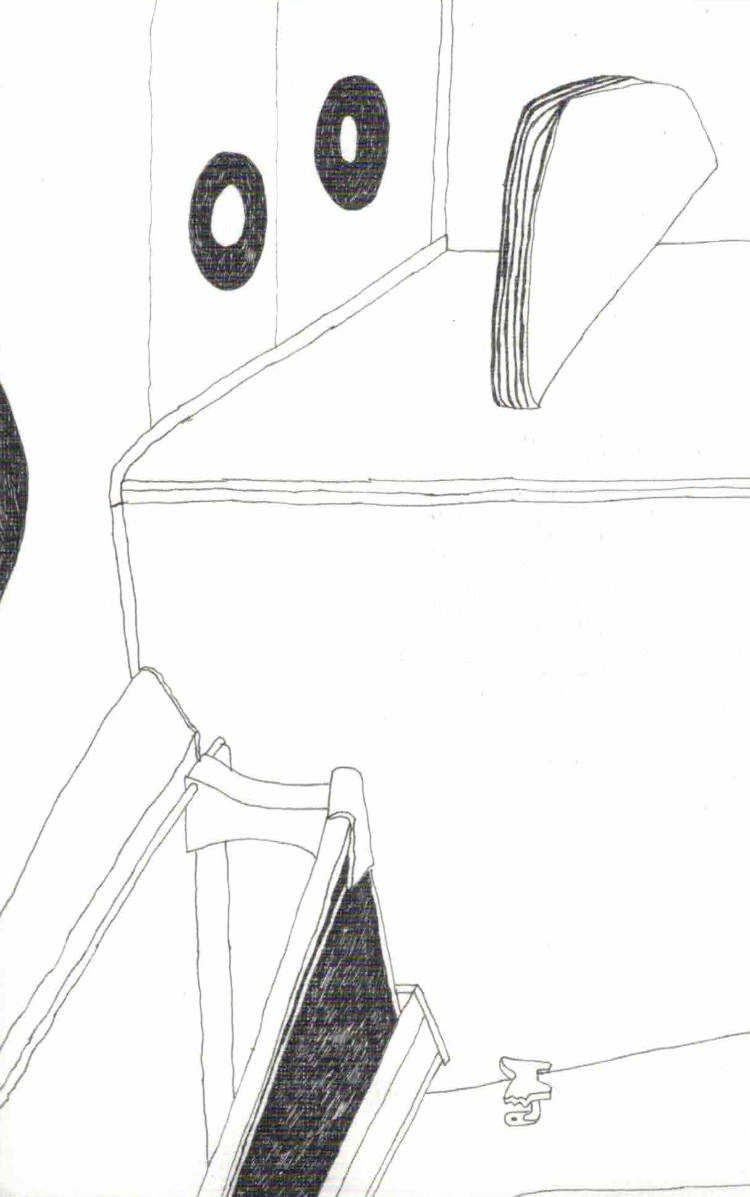
Retour
Retour is a book featuring a collection of drawings made on train journeys between Belgium and the Netherlands. It combines hand-written typography and train interiors, subtly highlighting cultural differences forming the countries’ border.
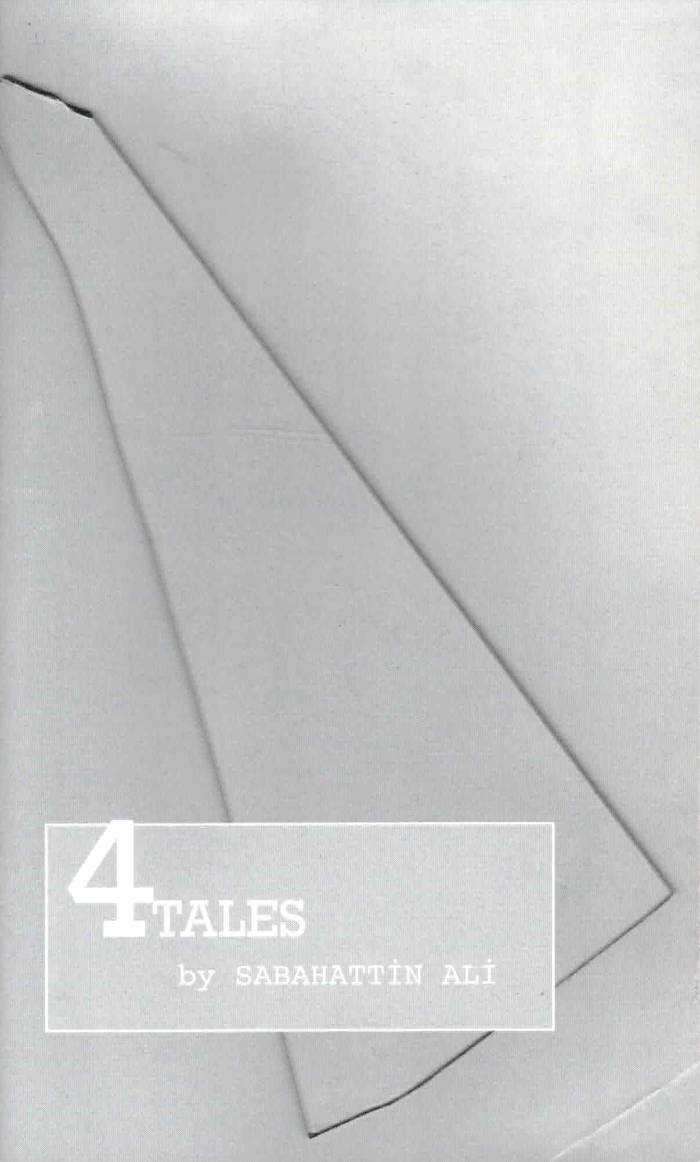
4 Tales
The power of Sabahattin Ali comes from beyond his words. It is his sense of observation, insight and commitment to fight for a fairer society that have carried his voice into the modern day.
The four tales in this book - Death of the Giants, A Tale of Love, A Tale of Sheep and The Glass Pavilion - were compiled and published in Sırça Köşk [The Glass Pavilion] in 1947. At the time Sabahattin Ali penned these tales, the young Turkish Republic was still struggling to establish a proper democracy with one sole party in parliament. In 1948 the Turkish Council of Ministers decided to ban Sırça Köşk, and all remaining copies were swiftly confiscated. Even after his death, the words of Sabahattin Ali were deemed as a governmental threat and for decades publishers were reluctant to print his work.
Almost eighty years later, these political and social tales remain just as poignant. Does this showcase Sabahattin Ali’s visionary spirit or a general lack of vision within our societies?
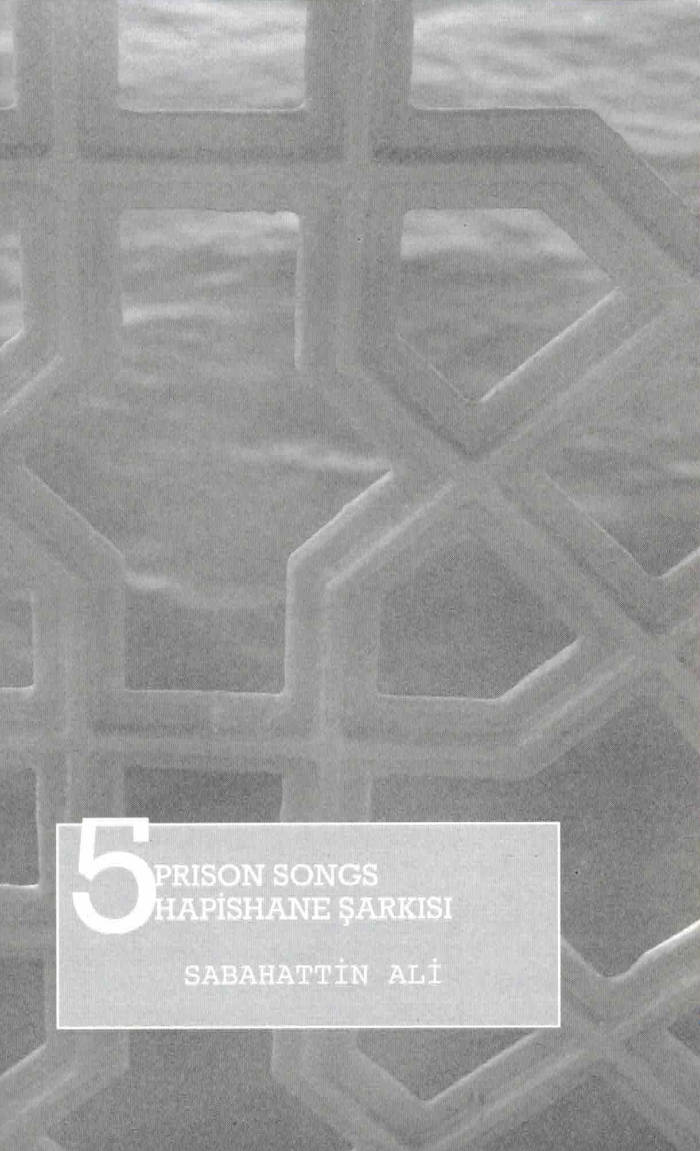
5 Prison songs / 5 Hapishane Şarkısı
This booklet is a collection of 5 Prison Songs written by Sabahattin Ali in 1932-1933 whilst imprisoned in Konya and Sinop, Turkey.
Bu kitapçık Sabahattin Ali’nin 1932-1933 senelerinde önce Konya sonra Sinop hapishanesinde kaleme aldığı 5 Hapishane Şarkısı içerir.
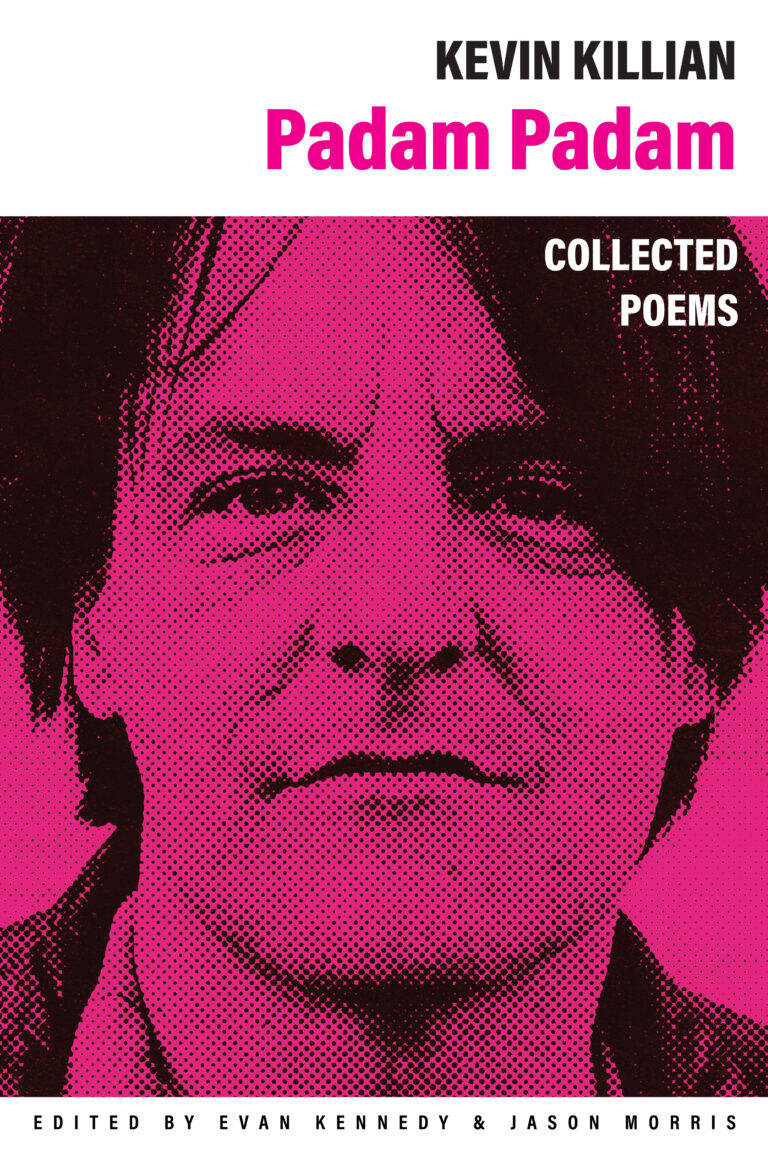
Padam Padam: Collected Poems
A posthumous celebration of the poet and provocateur Kevin Killian, Padam Padam pulses with camp, pop culture, and pleasure.
Kevin Killian—the puckish poet, playwright, novelist, scholar, and impresario of the Bay Area arts community—channeled the charisma of the pop stars. Pulled from his legendary corpus, and long out of print, the work collected here is the record of Killian’s life as a radical littérateur. In Argento Series, Killian conjures the horror, suspense, and cinematic imagery of director Dario Argento as he documents the AIDS epidemic in San Francisco. In Action Kylie, he revels in queer identity and the universal love of fandom. In Tweaky Village and Tony Greene Era, Killian elevates artists and friends to legendary status within his personal pantheon. And Elements, Killian’s wink at the periodic table, makes its U.S. debut.
The collection features an introduction by Kay Gabriel, who writes of Killian’s “fabulous, permissive body of work, charming, filthy and smarmy at turns, with its retchable milk enemas and its devilish twists.”
Edited by Evan Kennedy & Jason Morris
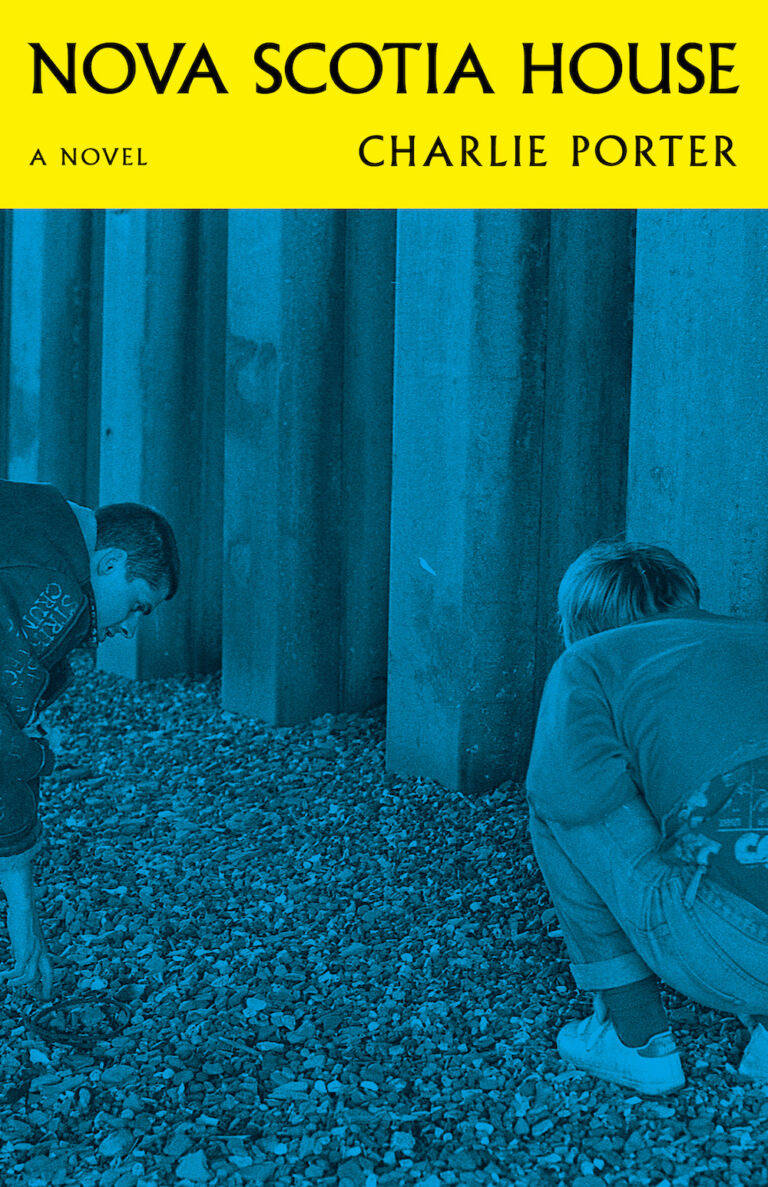
Nova Scotia House
Nova Scotia House takes us to the heart of a relationship, a community and an era, both a love story and a lament.
In this profound meditation on grief, Johnny looks back at his relationship with his life partner, Jerry, after his AIDS-related death. When they met, nearly thirty years ago, Johnny was 19, Jerry was 45. They made a life on their own terms in Jerry’s flat: 1, Nova Scotia House. Johnny is still there today—but Jerry is gone, and so is the world they knew.
Intimate, visionary, and profoundly original—as well as raw, hot, and hilarious—Nova Scotia House marks the debut of a vibrant new voice in contemporary fiction.
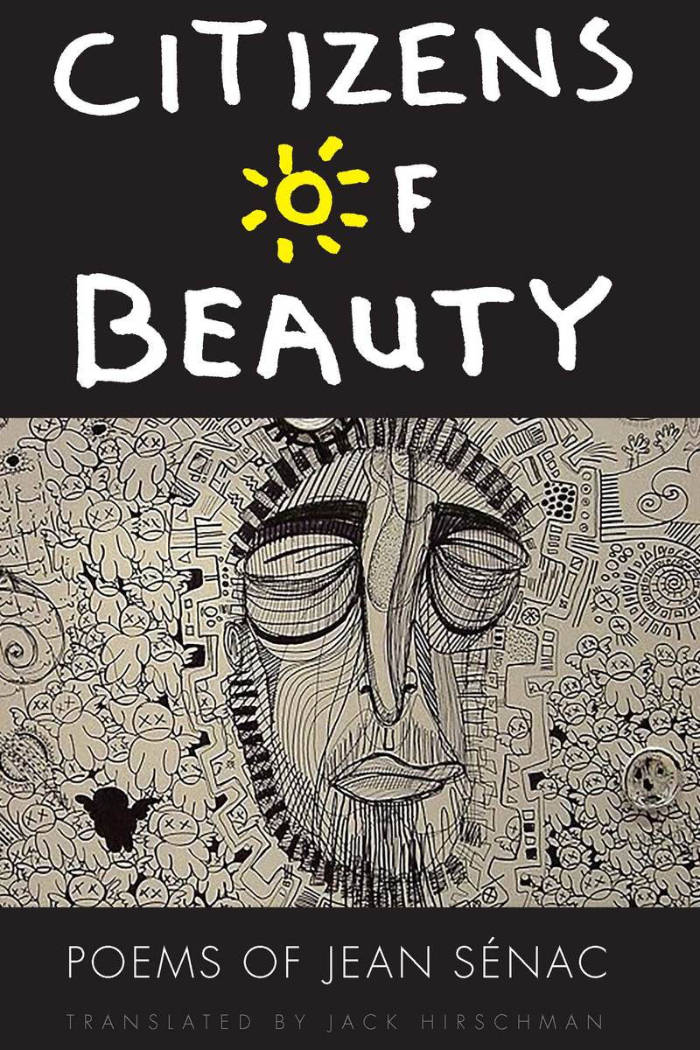
Michigan State University Press
Citizens of Beauty: Poems of Jean Sénac
This stunning collection of poems by the Algerian poet Jean Sénac (1926–1973) was originally published when he was forty-one. Sénac represented the hope of the new generation of Algerians who were celebrating their independence from France after 130 years of colonialism, and in the tradition of René Char and the early Albert Camus, he portrayed an Algeria whose land and people would finally sing with their own voice.
Sénac celebrates revolution, love, and the body, beginning with the resonant verses: “And now we’ll sing love / for there’s no Revolution without love.” He sang, as well, of beauty: “No morning without smiling. / Beauty on our lips is one continuous fruit.”
Translated by Jack Hirschman
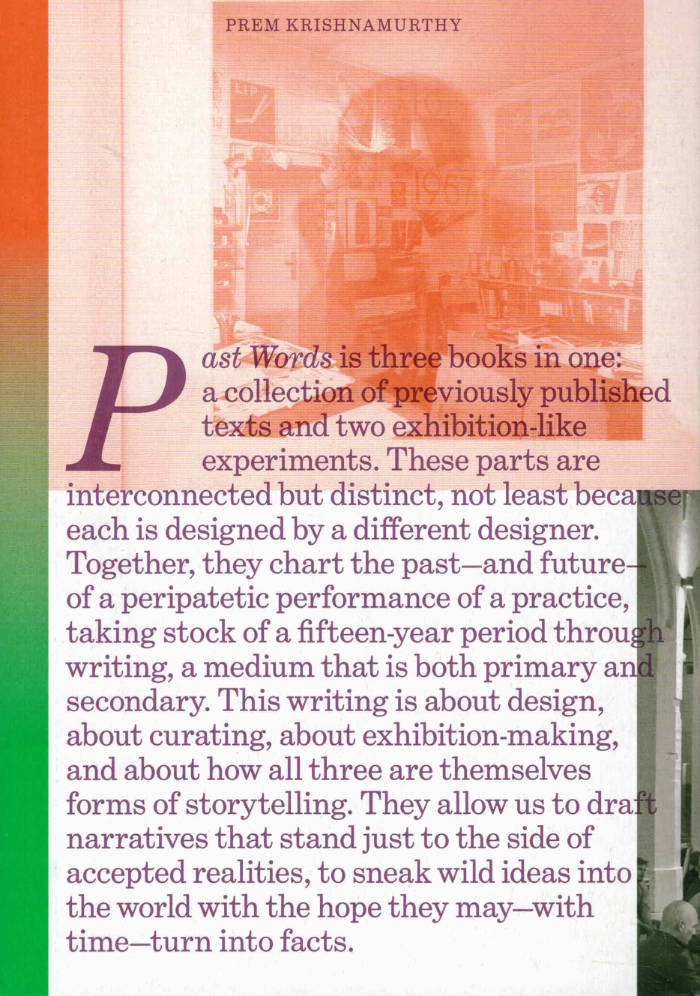
Verlag der Buchhandlung Walther König
Past Words
Past Words is three books in one: a collection of previously published texts and two exhibition-like experiments: A Year with Prem Krishnamurthy at the KW Institute for Contemporary Art, Berlin, and Endless Exhibition at the Kunsthal Gent. These parts are iinterconnected but distinct, not least because each is designed by a different designer—Ann Richter, David Knowles, Mark Foss & Valentijn Goethals. Together, they chart the past—and future—of a peripatetic performance of a practice, taking stock of a fifteen-year period through writing, a medium that 1s both primary and secondary. This writing is about design, about curating, about exhibition-making, and about how all three are themselves forms of storytelling. They allow us to draft narratives that stand just to the side of accepted realities, to sneak wild ideas into the world with the hope they may—with time—turn into facts.
Based in Berlin and New York, designer and curator Prem Krishnamurthy (born 1977) is head of the artist group Department of Transformation and of the design consultancy Wkshps. In 2015 he was the recipient of the Cooper Hewitt’s National Design Award for Communication essDesign. As both creator and curator, Krishnamurthy aims to discover “how art & design can be agents of transformation for individuals, communities and institutions.”
With an introduction by Krist Gruijthuijsen.

Verlag der Buchhandlung Walther König
#GIVEPOETRYATRY
The artist’s book ‘#GIVEPOETRYATRYCOLLECTEDPOETRY1990-2020…’ features thirty years of Karl Holmqvist’s artist’s writing in the form of spoken word and concrete poetry, together with signature “cover versions” of lyrics from singer-songwriters such as Robyn and Taylor Swift. The book’s tightly written A4 format pages and cardboard-box-brown no-nonsense cover has been designed in a collaborative effort between the artist and designer Dan Solbach.
‘#GIVEPOETRYATRYCOLLECTEDPOETRY1990-2020…’ Karl Holmqvist’s artist’s book of collected poetry is published by Verlag der Buchhandlung Walther und Franz König on the occasion of projects at the Fridericianum, Kassel and gta exhibitions, ETH Zurich.
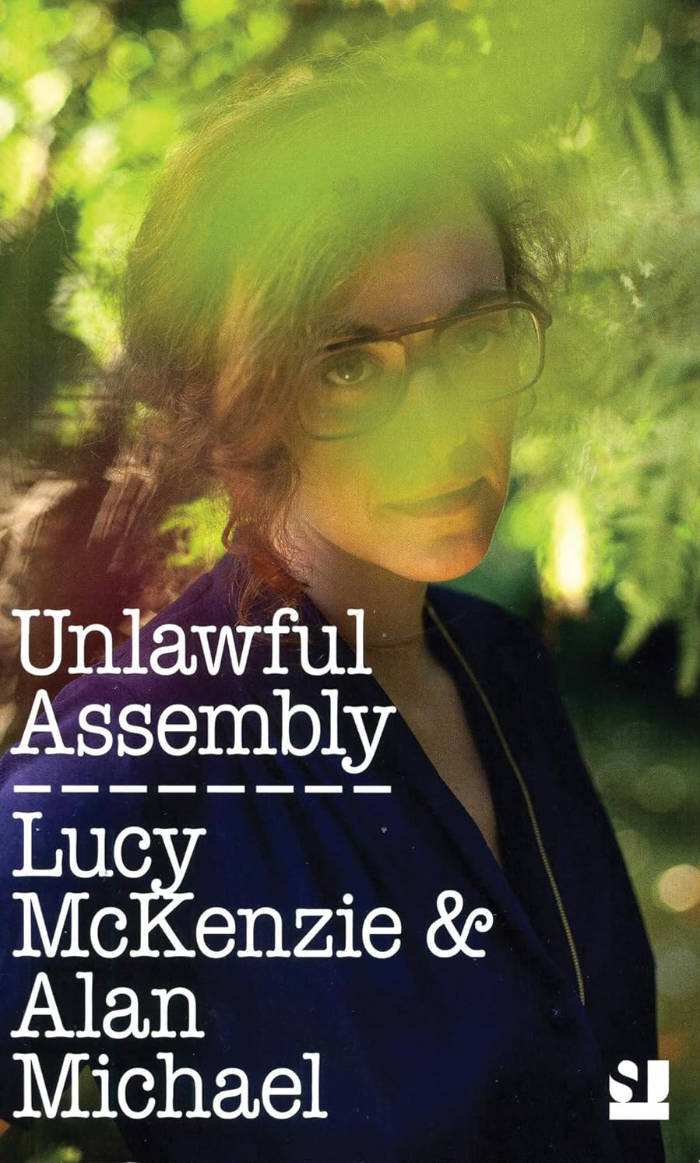
Verlag der Buchhandlung Walther König
Unlawful Assembly
A collection of interrelated short stories by Lucy McKenzie and Alan Michael. First published in private limited edition, it was intended as a cheap holiday read to titillate and entertain summer visitors to the Mediterranean island of Stromboli, and as a piece of site-specific work; the location of the action and the place in which it is read being the same.
The visual art subsequently generated by Unlawful Assembly includes work by Josephine Pryde, with whom the artists collaborated to produce this second edition’s cover image.
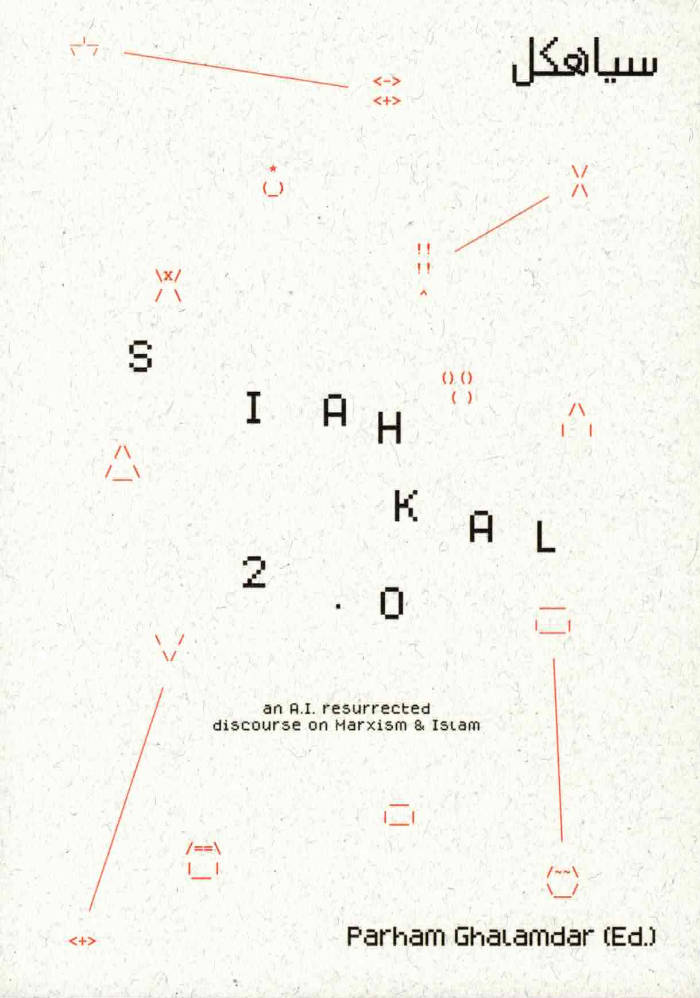
SIAHKAL 2.0: An A.I. resurrected discourse on Marxism & Islam
This is a limited edition book. The author trained an LLM on the texts of a deceased theorist, and then proceeded to interact with the LLM and produce simulations of what the theorist may have said in regards to various pertinent topics. The book is primarily a free online resource, but a few copies are being printed to commemorate the work. It has a foreword and afterword by the Editors.
At the core of this project is a translation of “Marxist Islam or Islamic Marxism,” a groundbreaking text written by Bizhan Jazani during his imprisonment in the 1970s under the Shah’s oppressive regime. Translated by Parham Ghalamdar, this work is accompanied by an introduction contextualizing Jazani’s radical vision. Ghalamdar also contributes a series of ASCII-style illustrations and diagrams—AI-assisted reinterpretations of Jazani’s original paintings and photographs—that bridge the past and present, offering a new perspective on his revolutionary artistry.
Siahkal names a place in the forests of Gilan and a threshold in revolutionary time. In 1971 a guerrilla action near Siahkal shook the order of the Shah. The action failed militarily yet seeded a myth for the People’s Fedai Guerrillas. Bizhan Jazani, a founding thinker, wrote and painted in prison and was executed in 1975. His work teaches that strategy rather than sentiment endures. // This book treats Siahkal as a Deep Object, a persistent attractor that gathers memory, images, and tactics. An AI model trained on Jazani’s writings and paintings translates his essay on Islamic Marxism and proposes annotations. The machine functions as a probe that widens attention while remaining accountable to the source. Parham Ghalamdar trained the AI, wrote the introduction, and composed ASCII diagrams and diagrammatic readings from Jazani’s artworks. Parsa Esmaeilzadeh contributes an essay that reads Jazani through Karatani and left accelerationism. // It is a call to reimagine and export revolution as a Deep Object that asks for Deep Time to unfold. This clandestine edition invites the reader to study, test, and build strategy that can outlast the news cycle and meet the future head on.
Parham Ghalamdar is a multidisciplinary artist currently based in the UK. Ghalamdar’s work traces forgotten mythologies, buried philosophies, and visual ruins, reconfiguring them into speculative worlds where memory, fiction, and futurism collapse into one another. Drawing on cybernetic theory and generative AI, he explores how systems of feedback, simulation, and machine vision mediate our understanding of history and possibility. Through painting, film, and writing, he builds narratives that feel both ancient and yet-to-come, haunted by lost histories and animated by possible futures.

Empires Over Skin: How we Fashioned our World
Meltdown Your Books, the author of Where Does A Body Begin? (2023), returns to Becoming Press for their second book, focusing not, this time, on the body itself, but what comes next. Whether in the sense of Dress, Clothing or Fashion, there is not much beyond the body itself that better signifies humanity than the act of adorning a body with garments, because we have no fur, or because of social codes, whether religious or class-oriented, because of beauty, or because of industrial capital; because, because, because.
“The mounds of clothing that adorn my floor and the foot of my bed sometimes grow too large, and suddenly I am sinking into the matted mess of fabrics. On days like these I can’t help but feel that clothing, not just my clothing, but the very idea of clothing, is swallowing me up. Clothing is this immensity looming over me, yet somehow a microscopic itch in my brain, prodding me and twisting itself into knots–an irritation I accept for the temporary bliss of scratching it.”
To be human is to wake up, every morning, and to don the costume that completes your identity, for better or worse, by choice or by coercion.
The task this book undertakes requires a particular kind of author, one who can recognise and sort through the contradictions on a theoretical level, but also someone who does not abstract the topic from their position as a subject—a critical book of fashion must be written by someone who lives it, someone who is passionate enough to write in good faith, because fashion isn’t just Gucci and Sweatshops—which themselves are rightly condemned for all kinds of reasons—because fashion itself is merely the tip of what may be one of the biggest, deepest ice bergs of all—Fashion is a philosophical black hole, one which drags everything into its infinite stomach, from semiotics to psychoanalysis, to art, design and craftsmanship, to economics and production chains, to speculation and historicising, to algebra, journalism and so on.
Yet, this isn’t a philosophy book because it is simply too down-to-earth and relatable; it is just as celebratory and excited as it is critical. M.Y.B. begins by simply looking down, and beginning to describe the shoes upon their feet—it unravels dialectically and uncovers long chains of connections that stretch back through time.
Meltdown Your Books (M.Y.B.), the pen name, was made as a portmanteau of the seminal essay Meltdown by Nick Land, and the landmark film Throw Away Your Books, Rally in the Streets by Shuji Terayama. I chose the name, almost 3 years ago now, to reflect the political and digital black hole I saw hovering at the edge of contemporary media experience, and to present my work without the muddy veneer of personal identity. It has remained, since its inception, an anonymous project in only the loosest terms. The dedicated could always find my real identity, and some have, and so its anonymous character existed primarily as an element of presentation. Its anonymity existed to emphasize its deindividuated character. The things I discuss and emphasize under the M.Y.B. label are not items with definitive characteristics, they are collective experiences. M.Y.B. is something I cherish beyond self.
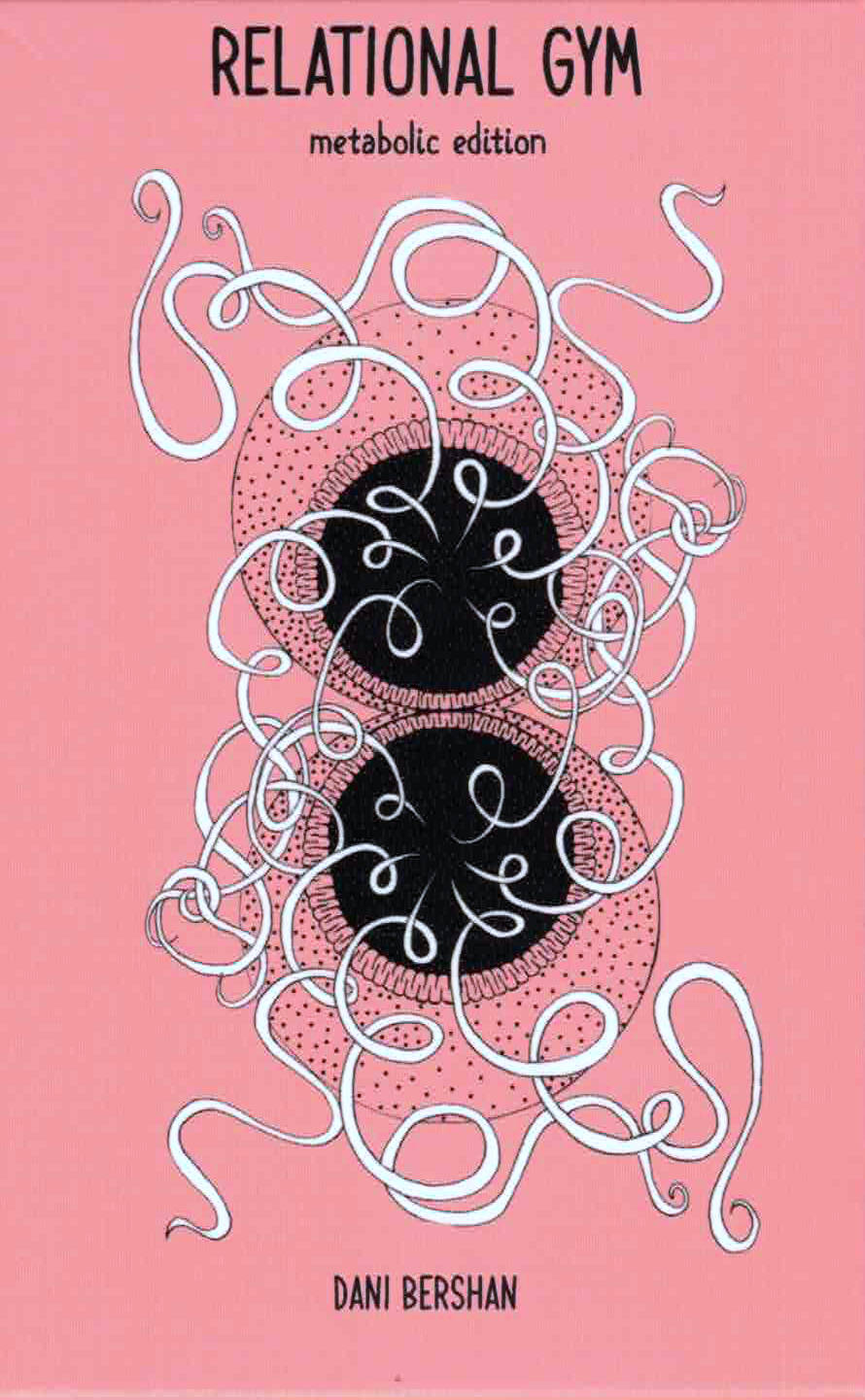
Relational Gym - metabolic edition
This deck is a ritual technology for metabolizing what is happening in the world — and the world is burning, flooding, choking, grieving, starving, birthing, emerging.
Here, metabolism is not just digestion. It’s a political act. A refusal. A prayer. A practice of remembering that every breath, every bite, every boundary, every breakdown is a site of relation — and that relation is never neutral.
This deck does not offer escape. It offers entanglement. It offers deep compost. It offers the sacred mess of staying with the trouble in a world that teaches us to numb, sever, consume, and forget.
It asks: What are we absorbing? What are we excreting? What are we ready to transform — personally, collectively, cosmically?
Use it when you feel cracked open. Use it when you feel sealed shut. Use it as ceremony, as salve, as companion, as agitation. Draw a card. Let the questions move you. Let the images sit on your mucosa. Let the reflections metabolize slowly — in the gut, in the fascia, in the field.
Each card invites you to remember that your body is not separate from Earth’s body. That your breath is not yours alone. That healing is not a return to purity, but a layered, leaking, entangled becoming. There is no clean air. No clean grief. No clean soil and no clean politics. Only deeper sensing, slower noticing, more compassionate worlding and a thousand and one chances to recommit to aliveness — again and again. Let rot what needs rotting. Let feed what needs feeding.
A 39-card oracle deck + 52-page booklet.
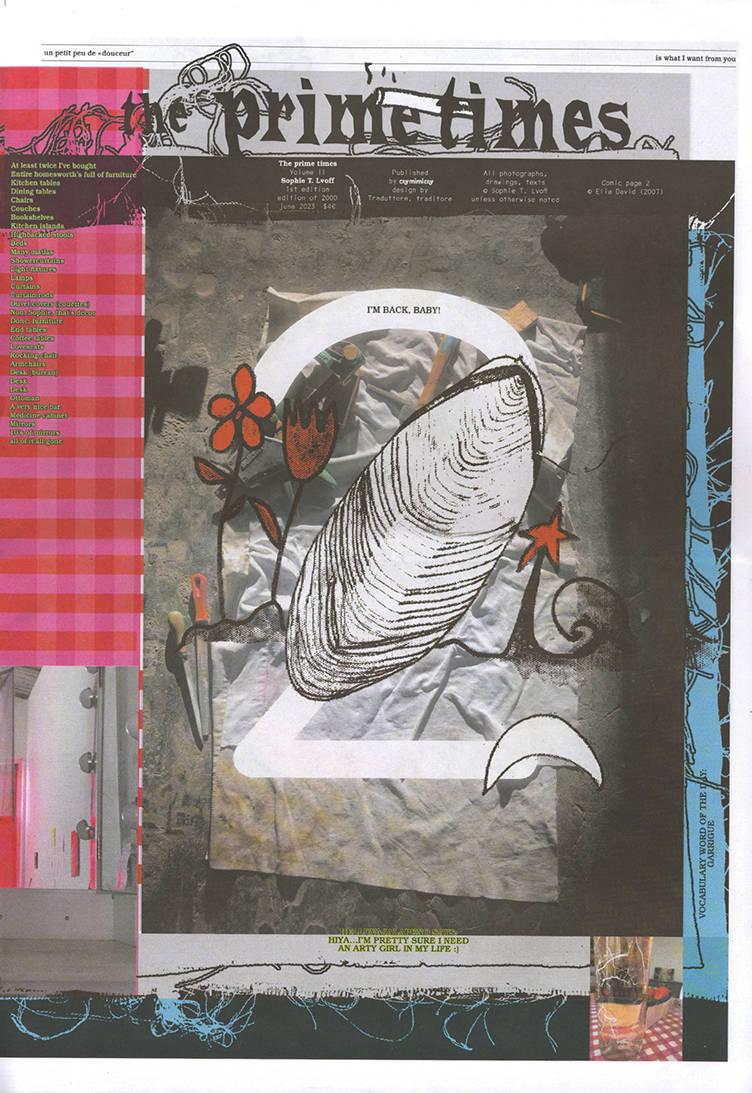
The Prime Times Vol.2
Sophie T. Lvoff revient avec « The Prime Times, Volume 2 » à l'occasion de la fin de sa résidence aux ateliers de la ville de Marseille, bye, bye! Au travers de poèmes en haïku, de gros titres et de photographies de son atelier traversé par la lumière du jour au milieu de l’après-midi, le journal chronique la torpeur des longues journées de travail mêlées d’attente, de glimpses et de glances. En attendant the prime time, Sophie lit les nouvelles sur son téléphone, parcourt paresseusement sa bibliothèque, écrit des emails à des amix éloigné·es et parfois à elle-même. Elle note des blagues et des poèmes dans son cahier, mange des snacks, doute d’elle-même, fume, jette des regards autour d’elle, jusqu’au moment précis où la photo doit être prise.
Sophie T. Lvoff is back with « The Prime Times, Volume 2 »! Through haiku poems, headlines, doodles and photographs of her studio pierced by mid-afternoon daylight, the journal chronicles the torpor of long workdays mixed with waiting, glimpses, and glances. While waiting for the prime time, Sophie reads the news on her phone and lazily reads her collection of books, writes emails to far-away friends and sometimes to herself. She notes things in notebooks and writes jokes and poems, stretches, eats snacks, doubts herself, smokes, glances around, until the precise moment when the picture has to be taken.
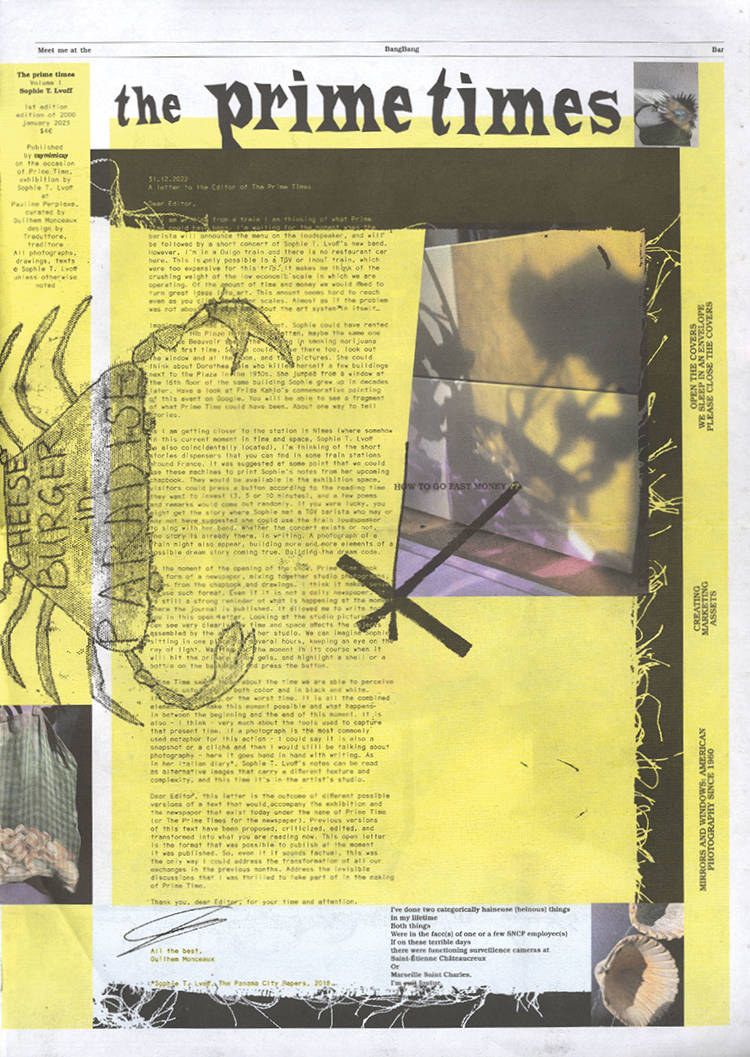
The Prime Times Vol.1
Dans « The Prime Times, Volume 1 », Sophie T. Lvoff met en scène sa pratique quotidienne d’atelier. Au travers de poèmes en haïku, de gros titres et de photographies de son atelier traversé par la lumière du jour au milieu de l’après-midi, le journal chronique la torpeur des longues journées de travail mêlées d’attente, de glimpses et de glances.
En attendant the prime time, Sophie lit les nouvelles sur son téléphone, parcourt paresseusement sa bibliothèque, écrit des emails à des amix éloigné·es et parfois à elle-même. Elle note des blagues et des poèmes dans son cahier, mange des snacks, doute d’elle-même, fume, jette des regards autour d’elle, jusqu’au moment précis où la photo doit être prise.
In « The Prime Times, Volume 1 », Sophie T. Lvoff dramatizes her daily studio practice. Through haiku poems, headlines, doodles and photographs of her studio pierced by mid-afternoon daylight, the journal chronicles the torpor of long workdays mixed with waiting, glimpses, and glances.
While waiting for the prime time, Sophie reads the news on her phone and lazily reads her collection of books, writes emails to far-away friends and sometimes to herself. She notes things in notebooks and writes jokes and poems, stretches, eats snacks, doubts herself, smokes, glances around, until the precise moment when the picture has to be taken.